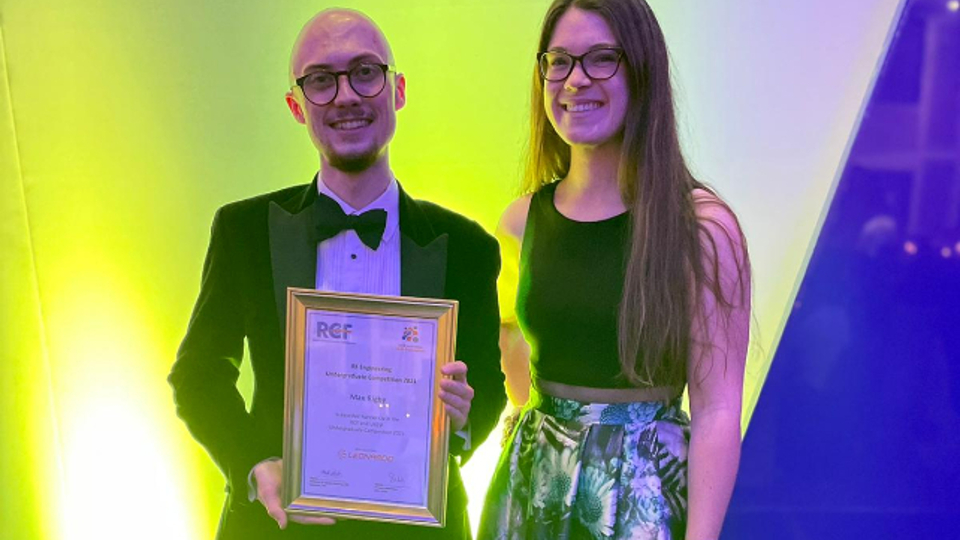His submission was based on his final year project that focused on designing a Ka-band patch antenna array and a 3D printed circular polarisation converter. His design used a panel manufactured with a desktop 3D printer to transform the linearly polarised waves emitted by the antenna into circularly polarised waves. These are more resistant to certain sources of signal loss and interference and are agnostic to the orientation of the receiving antenna.
Finalists are invited to the gala dinner to receive their awards but they are also welcome to attend the TechWorks Industry Summit which consists of talks on new developments within the industry.
Max said: "I’m really pleased to have been named the runner up and it means a lot for my final master’s project to be recognised.
“Earning my degree at Loughborough has been a wonderful experience, and I'd like to thank Professor William Whittow and Dr Tom Whittaker for their invaluable tutelage over the duration of my project."
Image: Max Rigby with Jess Kelly, another Loughborough alumni who was runner up for the prize in 2020.
